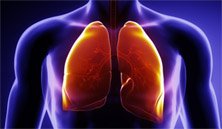Stem Cells to Lung Cells – Secret Sauce Discovered ?

Close to the heels of New Organ Liver Prize targeted towards creating organs to meet the rising demand of organ donors among population, researchers from the Columbia University Medical Center are working on a project which may enable them to create full-fledged human lungs, in-vitro in future.
These scientists have taken a first step towards this goal by successfully transforming human stem cells into functional lung cells. These lung cells have a huge potential, which includes its use in developing models of lung diseases, screening drugs to study the human lung development and creating new donor organs for implant. The team led by Professor Hans-Willem Snoeck has been able to develop lung and airway cells from the precursor anterior foregut endoderm derived by treating human embryonic stem cells or human induced pluripotent stem (iPS) cells with chemical factors. Until now, scientists have been easily transforming human stem cells into cardiac cells, intestinal cells, liver cells, nerve cells, pancreatic cells etc. successfully, paving way for the rise of regenerative medicine.Now, functional lung cells are also included to that list.
These researchers are collaborating with those from Columbia University Department of Biomedical Engineering for using this technology to make autologous lung grafts. These autologous lung grafts can be prepared by removing all lung cells from a donor lung and seeding the scaffolding with new lung cells derived by transforming stem cells from patients, thus eliminating the problem of organ rejection. The research has been published in Nature Biotechnology and supported by CUMC startup funds and New York Stem Cell Foundation.

